17 storeroom essentials of pro nutritionists - proof good nutrition doesn't need to be costly or complicated
Which staple foods and core ingredients do pro cycling nutritionists keep in stock at all times? Rob Kemp asks four specialists for their must-have items
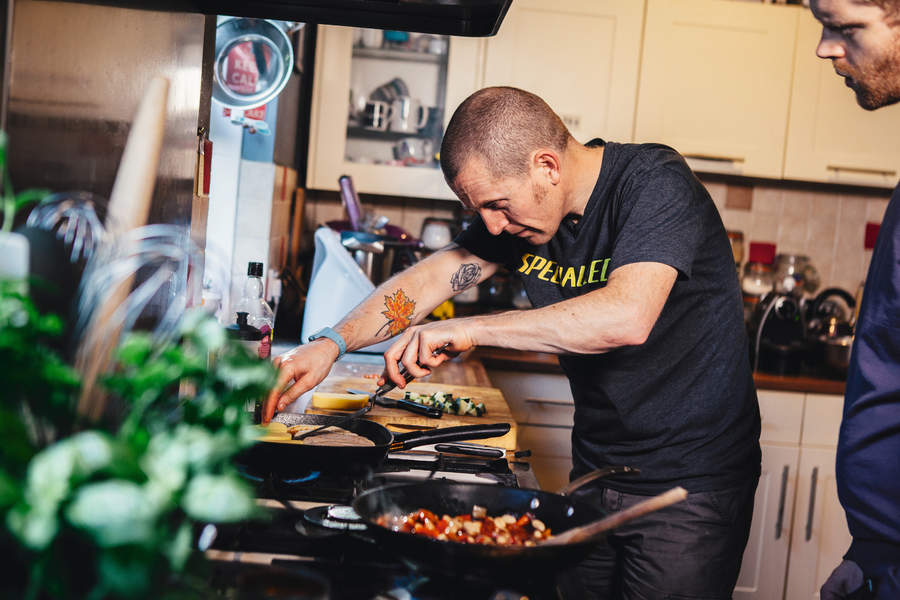

It’s the job of a team’s nutrition scientists and chefs to keep the supply truck well-stocked with the essential foods for carb-loading, energy on the go and post-event recovery.
But what do these experts in eating swear by when browsing the supermarket shelves? If we were to have a nose around their kitchen and open their fridge, what would we discover?
These specialists, charged with keeping elite athletes fuelled to the max and ready to ride day after day, reveal all...
Meet the experts

Team nutritionist at Soudal Quick-Step, former pro cyclist, London 2012 Olympian

MSc Dip.ISSN SENr, team nutritionist at EF Procycling
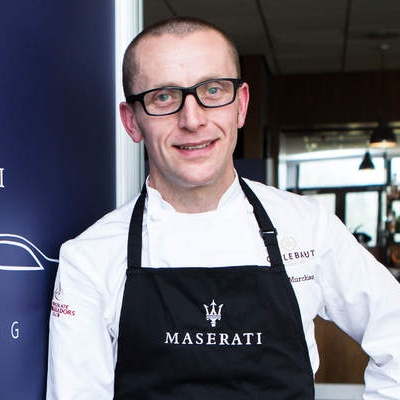
Michelin-starred chef, world & European duathlon champion and national-level Masters cyclist

Team GB nutritionist, founder of supplements brand Amino Man
Pasta
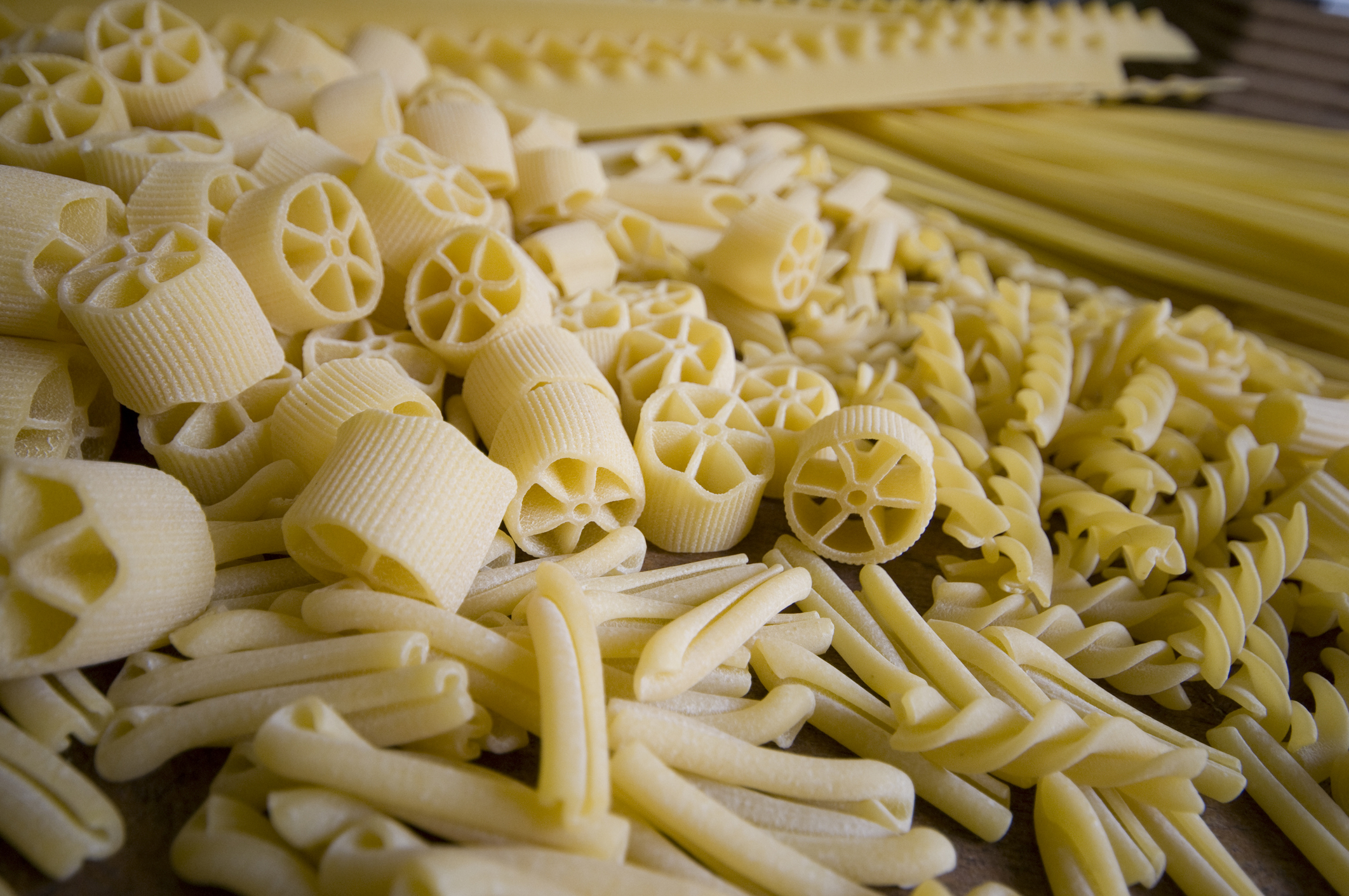
- Per 100g serving (dry weight)
- Kcal: 150-160
- Protein 5-7g
- Carb: 30-35g
- Fat: 1-2g
- Fibre: 1-2g
A bowl of regular pasta (100g dry) contains around 75g of carbs and is an ideal meal component the night before a big ride, favoured by pros and amateurs alike. Maaike Polspoel points out that team riders request pasta or rice with their evening meal during multi-day events. But Will Girling provides a word of warning.
“Just avoid having too much fibre, such as wholemeal pasta, before a ride. Fibre will fill you up, robbing you of space in your stomach that could be better used for quickly digesting carbs. It may also mean you need to go to the toilet more the next day.”
Greek Yoghurt
- Per 50g serving
- Kcal: 40-60
- Protein: 3-4g
- Carb: 1-2g
- Fat: 3-4g
“I always have this in the fridge,” says Alan Murchison. “You take 50g of Greek yoghurt, mix it with 50g of oats and 100ml of fruit juice, and you’ve got the ideal breakfast if you’re going out for a hard ride. Also, if you’ve been out for a hard day, Greek yoghurt with fresh fruit before bed is really going to help with recovery. You can keep it for a week to 10 days in the fridge.”
Soudal Quick-Step’s nutritionist Polspoel agrees: “It supports muscle recovery, joint health, and inflammation reduction – and also contains probiotics that support gut health.”
Get The Leadout Newsletter
The latest race content, interviews, features, reviews and expert buying guides, direct to your inbox!
Just be sure to go for Greek yoghurt, which is a denser natural yoghurt with less water and a higher protein content than some of the ‘Greek-style yoghurt’ stuff that just uses gelatin gums or thickeners.
Eggs
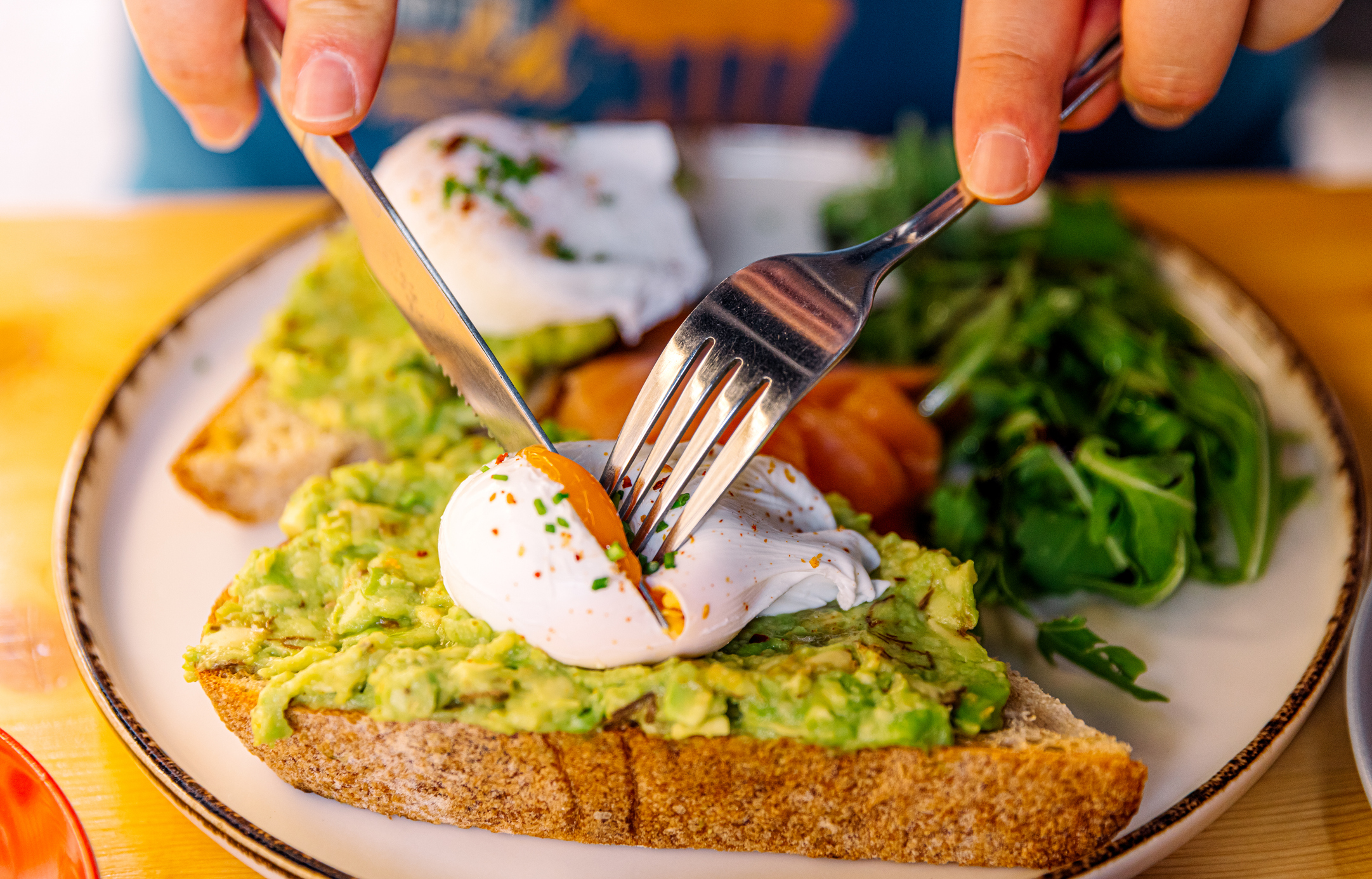
- Per egg
- Kcal: 70-80
- Protein: 6-7g
- Fat: 4-5g (mostly in the yolk)
“I always have eggs in the kitchen,” says Murchison. “Very versatile, probably the most unrecognised superfood you’ll ever come across. One of the best post-ride meals you’ll ever have is poached eggs on toast – that’s a great carbohydrate and protein combination. If you’ve got a hard day’s ride ahead, add some crushed avocado and smoked salmon to it, giving you a complete meal.”
What are the best ways to cook eggs? “The two skills that everybody should be able to learn are how to make an omelette and how to poach an egg – if you can learn those two basics, you can cover pretty much every lunch scenario you’ll ever need,” insists Murchison. “If you can make a three-egg omelette, that’s high protein, low carb. If you can poach an egg, you can add carbohydrates and fat to that with no stress whatsoever.”
Tart Cherry Juice
- Per 240ml serving
- Kcal: 120-130
- Protein: 1-2g
- Carb: 30-35g
- Protein: 1-2g
- Potassium: 300mg
“Cherry juice is a high-level anti- inflammatory that will aid in reducing inflammation within the muscle, which in turn will improve muscle recovery,” says Will Girling. “It also has high amounts of naturally occurring melatonin, which improves sleep. We know that deeper sleep aids recovery.”
Bananas
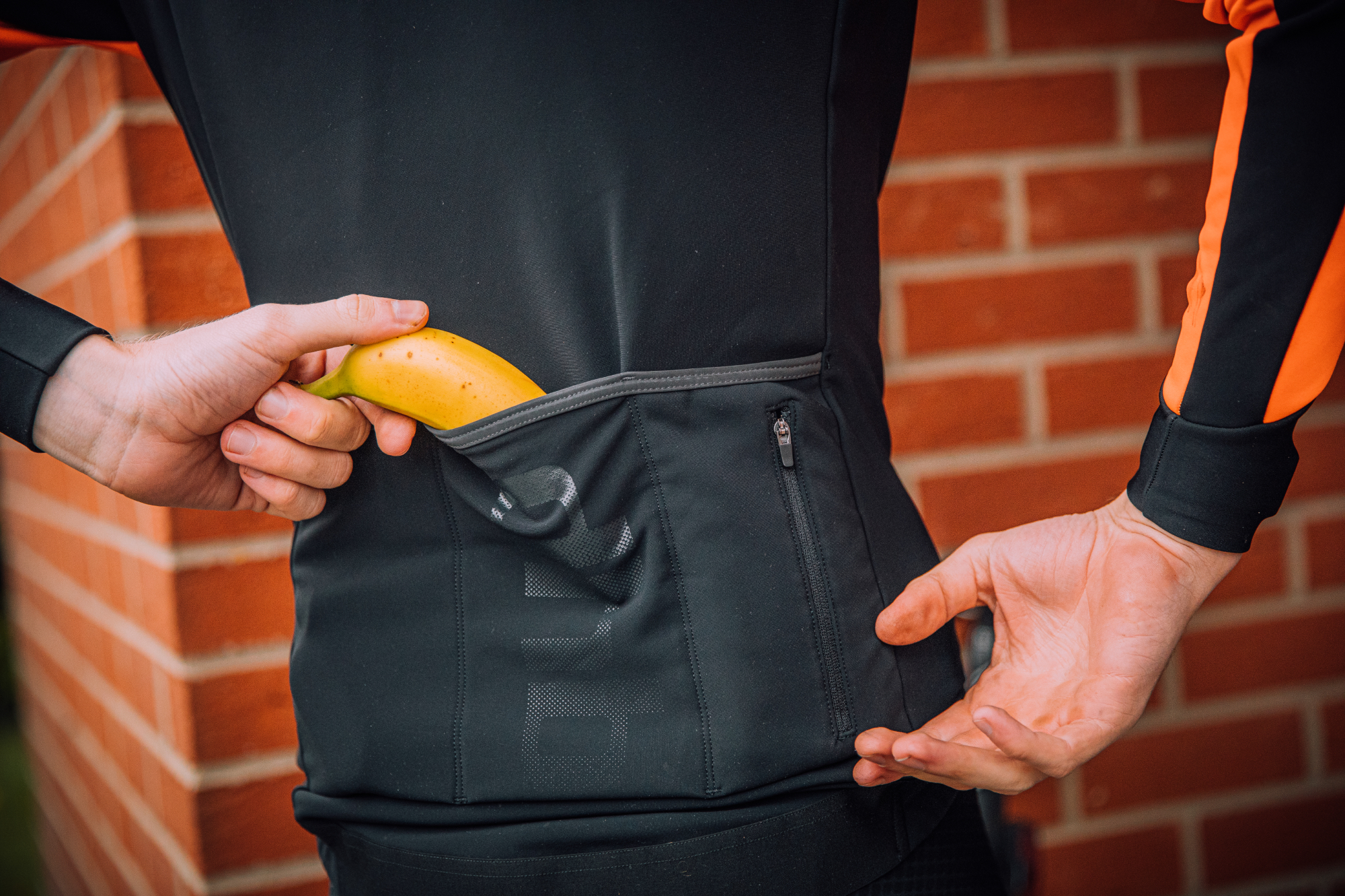
- Per medium-sized fruit
- Kcal: 105-120
- Protein: 1.5g
- Carb: 27-30g
- Fibre 3-4g
“Bananas contain easily digestible, fast-release carbohydrates which provide quick energy and also contain potassium [15% of daily intake per banana], which helps prevent cramps,” says Maaike Polspoel. “They’re perfect to add to a pre-ride porridge or to eat during training rides, as they’re easily digested. For rides under three hours, bananas can be all the ‘loading’ you need.”
Tumeric
“Another anti-inflammatory compound that helps reduce muscle soreness and promotes joint health,” says Polspoel. The active compound in turmeric, curcumin, contributes to the aromatic flavour of curries and has been shown to improve recovery, inflammation, and muscle soreness.
Risotto Rice
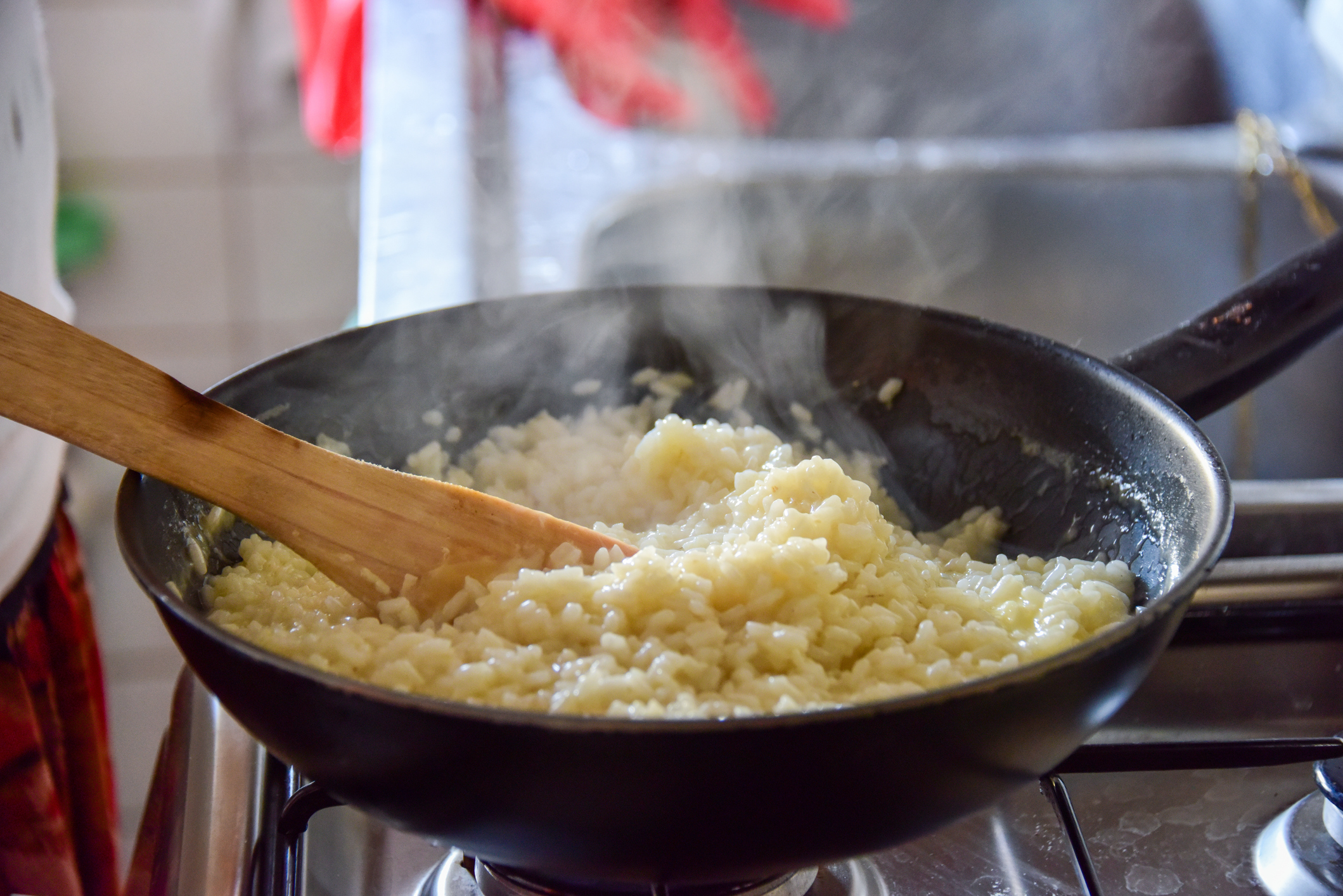
- Per 100g serving (dry weight)
- Kcal: 350-360
- Protein: 6-7g
- Carb: 77-80g
- Fat: 0.5-1g
- Fibre: 1-2g
“Risotto rice is practically pure carbs, and we use a lot of it on the road,” says Murchison. “It’s inexpensive, easy to cook, and makes the perfect hard, heavy day breakfast. We tend to cook 200g of risotto rice with 400g of coconut milk [one tin] and 400g of milk and a couple of tablespoons of sugar. You’ve got complex carbohydrates and simple carbohydrates that are easily digestible.”
Murchison values risotto rice for its versatility: “At the other end of the day, cooking up some risotto rice in a rice cooker with a bit of grilled protein is perfect. Basmati or white rice is delicate and more difficult to cook, but risotto rice can be used to make rice cakes, it can be used for breakfast, and also for dessert, or for a main meal. Just go for the supermarket’s own brand.”
Haribo gummies
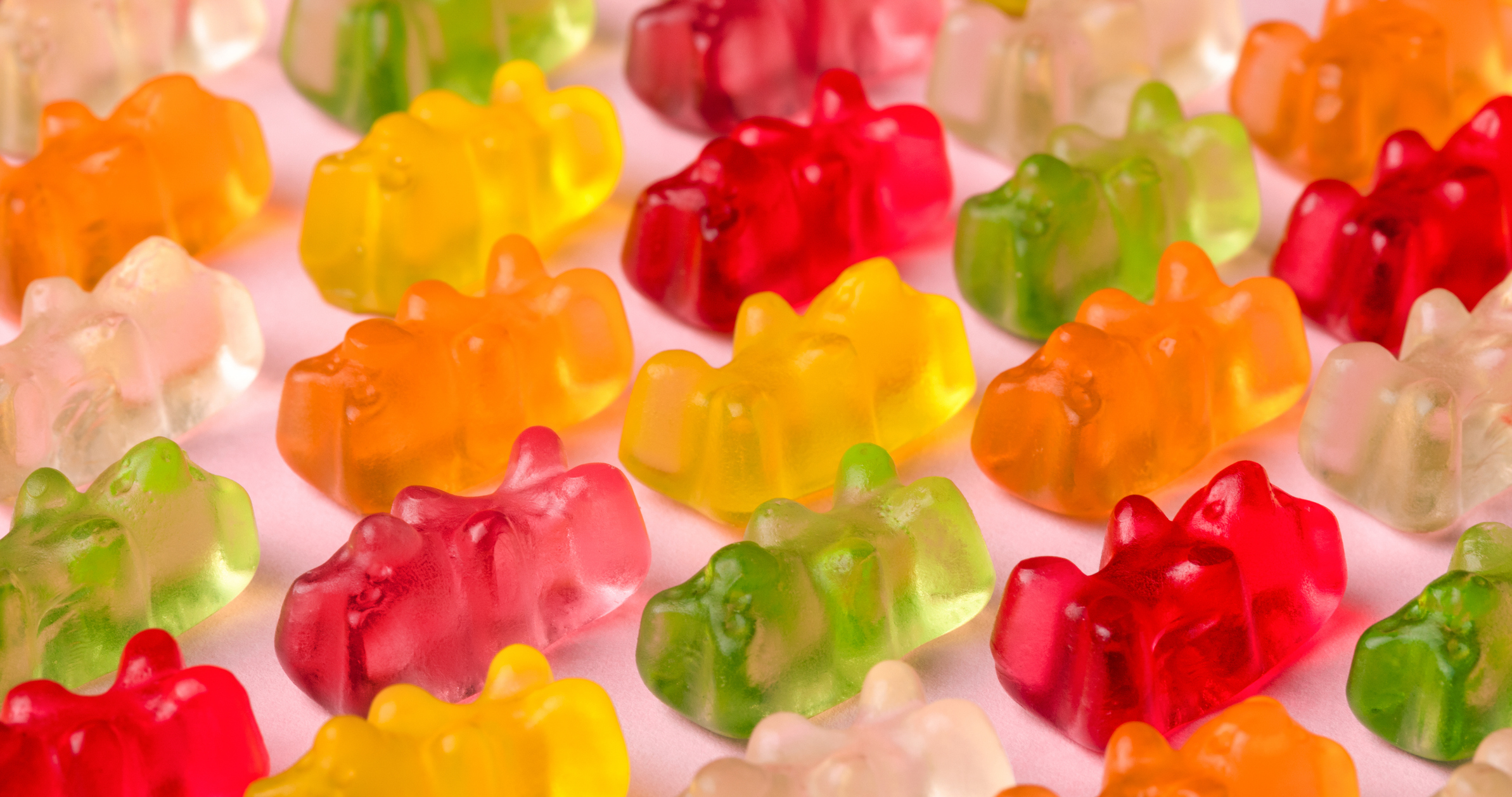
- Per 25g – small handful
- Kcal: 90-100
- Carb: 22-25g
Chewy sweets might not seem the healthiest option, but they’re the quick-hit energy choice of Soudal Quick-Step team nutritionist Polspoel. “Use these as a fast fuel source,” she says. “Instant sugar-hit sweets like these are ideal to take during and right after training sessions or races – Jelly Babies and Jaffa Cakes are also popular high-carb ride snacks.”
Pineapple
- Per 165g serving, fresh
- Kcals 82
- Carb: 22g
- Fibre 2.9g
“Pineapple provides a natural source of bromelain, an enzyme that lowers inflammation and breaks down proteins,” says Lovell. “It helps ease muscle and joint pain in the process.”
Soy & Sweet Chilli Sauces
“Buy a litre bottle of each because there you have sweet, sour, and salty flavours,” says Murchison. “Even if you only have some plain rice, chicken, fish, or veggies, or even tofu, you can make almost any- thing taste good with those sauces. Whenever I’m on the road, those are two ‘must-haves’. Asian supermarkets are the best place for large bottles of cheaper sauces that you can keep in the fridge; they last forever.”
Chocolate Milk
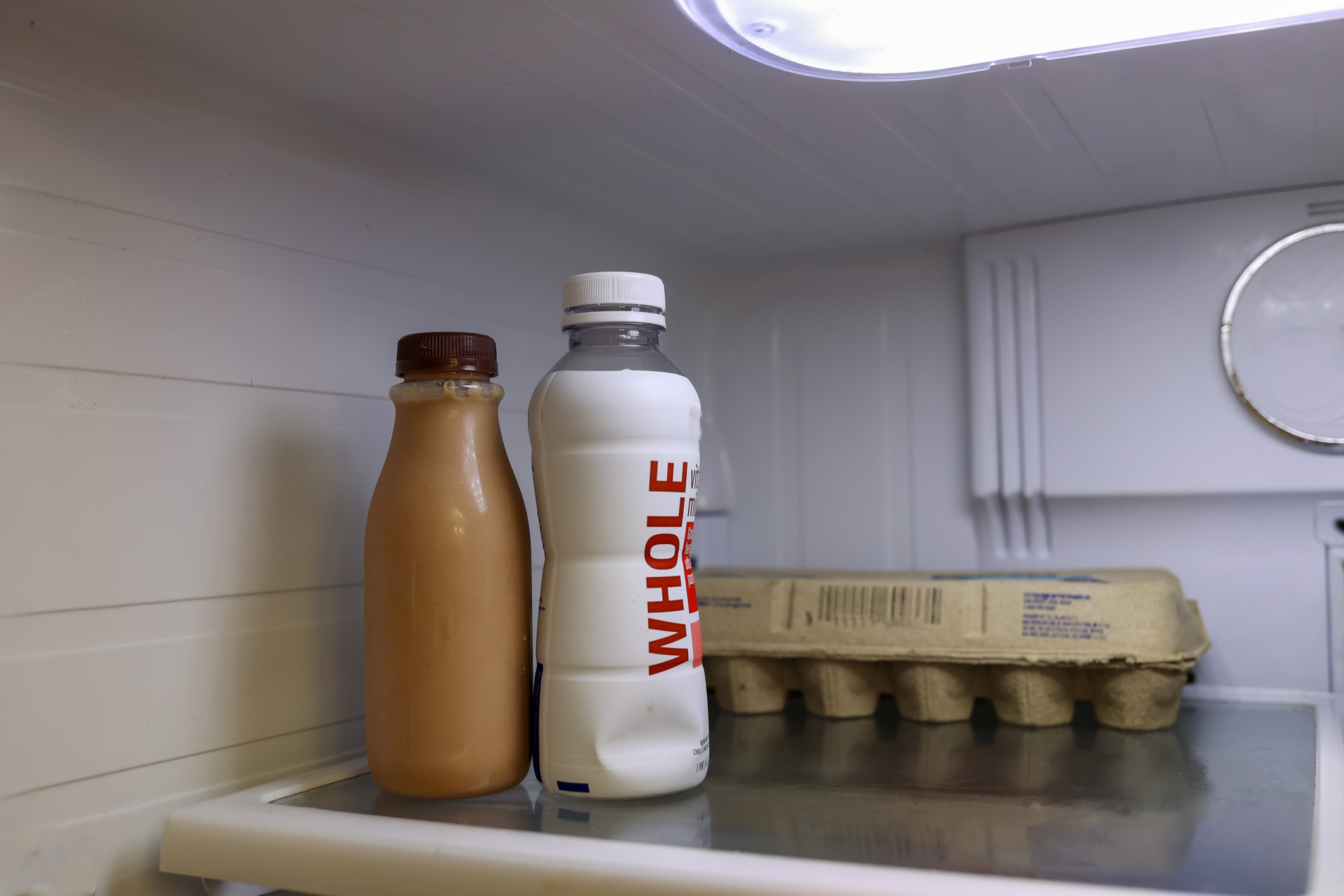
- Per 240ml serving
- Kcal: 150-190
- Protein: 7-9g
- Carb: 26-30g
- Fat: 2-5g
“Milk contains naturally occurring protein that has all your essential amino acids that drive muscle recovery,” says Girling. “There’s a combination of slow-digesting casein and faster-digesting whey protein, so you get a staged release of protein.
“The sugar from the flavouring enhances muscle recovery from a protein aspect and provides the building blocks to repair the muscle walls damaged through riding.”
Salmon
- Per 100g fillet, cooked
- Kcal: 206
- Protein: 22g
- Fat: 13g
“Packed with omega-3 fatty acids [2.3g per serving] which help support cardiovascular health and reduce muscle soreness,” says Matt Lovell.
“Omega-3 is commonly out of balance with omega-6 fats, but increasing your omega-3 intake will ramp up recovery by regulating inflammation. Other good sources include flaxseeds, sardines, and walnuts.”
Coconut Water
- Per 240ml serving
- Kcal: 45-50
- Protein: 1g
- Carb: 9-11g
- Potassium: 400-600mg
- (10-15% of the RDA)
“Coconut water is naturally rich in electrolytes and helps rehydrate and replace minerals lost during riding,” says Polspoel. “Also, salted crisps are high in sodium, so they help replenish electrolytes lost through sweat during exercise. They restore sodium levels and promote proper fluid balance.”
Frozen Grapes
- Per 150g serving (approx 20 grapes)
- Kcal: 62
- Carb: 16g (sugars 15g)
- Fibre: 1g
“The cold temperature and natural sugars from frozen grapes provide a refreshing and quickly digestible source of carbohydrates,” adds Polspoel.
“These can help replenish glycogen stores and provide a rapid energy boost during or after rides. I also encourage riders to eat plenty of berries. As a natural source of vitamins and antioxidants, they support recovery by reducing inflammation after a hard effort, and are a quick source of energy.”
Bread

- Per slice of sourdough
- Kcal: 70-80
- Protein: 2-3g
- Carb: 13-15g
- Fat: 0.5-1g
- Fibre: 1-2g
“Breads that aren’t too high in fibre are a good source of carbs, and white bread and jam sandwiches are a great option, popular with some quite famous riders,” says Will Girling. “They’re easy to eat in the saddle and deliver fast, consistent carbohydrate that will raise blood sugar levels. Also, we want to maintain those levels to support exercise performance. White bread, which is low in fibre and low in fat, slows down digestion.”
Betroot
- Per 100g raw
- Kcal: 43
- Carb: 9.6g
- Fibre: 2.8g
“A well-established source of nitrates that enhance blood flow and muscle oxygen delivery to improve cycling performance,” says Polspoel. In studies, higher nitrate intake has been linked to an increase in power output of 5% during a 4km time trial. “Celery is a handy alternative if the earthy tang of beetroot isn’t to your taste.” Celery’s high nitrate levels of 250mg per 100g put it in the same league as the much-vaunted beetroot, but with none of the sour taste or red urine side effects.
Ginger Tea & Coffee
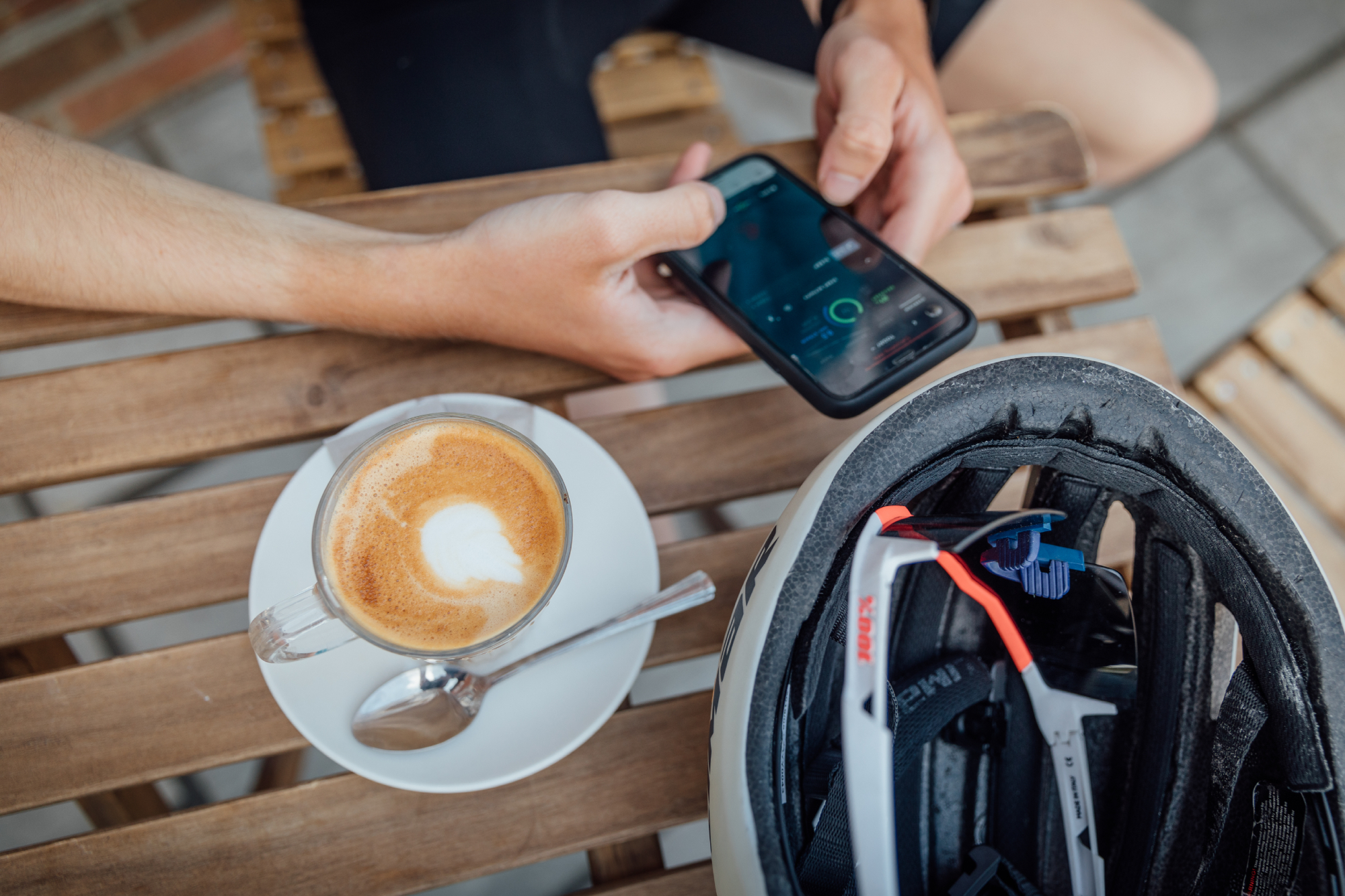
“Arabica bean double espresso,” Matt Lovell offers us. “Caffeine is a proven ergogenic aid; coffee is better than pure caffeine for this purpose. Caffeine in an espresso can vary, though, with a single shot providing anything from 29-100mg (often around 75mg) and a doppio 58- 185mg (often around 150mg).”
The recommended caffeine dosage for cycling performance is 3-6mg per kilo of body weight, which translates to approximately 210mg. “So that double espresso could give you a hit of roughly 185mg of caffeine before the ride, while stopping for a medium Americano could give you a 277mg caffeine boost.”
Ginger tea often accompanies the coffee in the pre-race offering for Soudal Quick-Step riders – Julian Alaphilippe is a big fan. “It’s good for the digestive system and provides an additional kick- start to the body,” says Polspoel.
Optional Extras
Which one additional item would each of our experts add to their store cupboard alongside the basics?
OMEGA-3: “Having oily fish or fish oil supplements at least three times a week is the best source of bone-repairing and growth- inducing omega-3 fats,” says Will Girling. These fishy foods don’t get only cats excited; crucially, they reduce inflammation in a helpful way, they help bind minerals and strengthen the skeleton.
BAKING SODA “The active ingredient sodium bicarbonate buffers acidity in the blood and therefore delays muscle fatigue,” says Maaike Polspoel. “This allows cyclists to sustain higher levels of effort for longer periods. It’s quite harsh on the stomach, though – so its optimal dose, between 0.2-0.4g per kilo of body mass, should be taken around 60-120 minutes before a session, as a flavoured capsule, or mixed in water."
VEG BOX SUBSCRIPTION: “You could spend a fortune on supplements or just ensure you’re getting fresh vegetables every day to naturally cover all your needs,” says Alan Murchison. “We can find carbs and protein really easily but neglect to incorporate a couple of good portions of vegetables into our meals every day. It doesn’t matter what vegetables you’re adding – there are no ‘bad’ ones. If you get a subscription, it’s delivered each week, and you can use any leftovers in soups.”
This article first appeared in Cycling Weekly print magazine. Subscribe to get the magazine delivered to your doorstep, every week.

Thank you for reading 20 articles this month* Join now for unlimited access
Enjoy your first month for just £1 / $1 / €1
*Read 5 free articles per month without a subscription

Join now for unlimited access
Try first month for just £1 / $1 / €1

Rob Kemp is a London-based freelance journalist with 30 years of experience covering health and fitness, nutrition and sports sciences for a range of cycling, running, football and fitness publications and websites. His work also appears in the national press and he's the author of six non-fiction books. His favourite cycling routes include anything along the Dorset coast, Wye Valley or the Thames, with a pub at the finish.
-
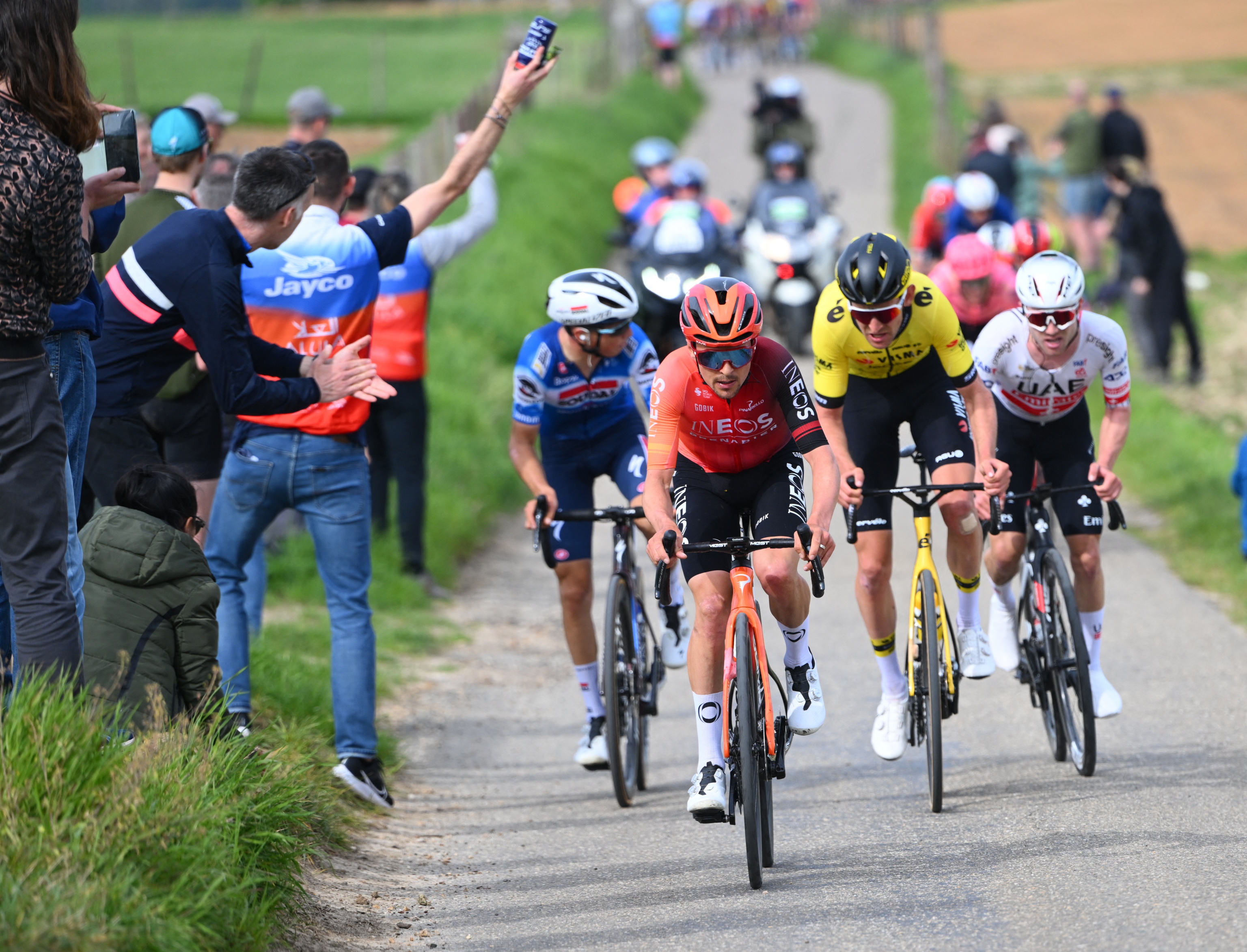 How to watch the Amstel Gold Race 2025: Everything you need to live stream the Dutch Classic
How to watch the Amstel Gold Race 2025: Everything you need to live stream the Dutch ClassicAll the broadcast information for the first of the Ardennes Classics on 20 April with Tom Pidcock – here's how to watch Amstel Gold Race online and on TV.
By Adam Becket
-
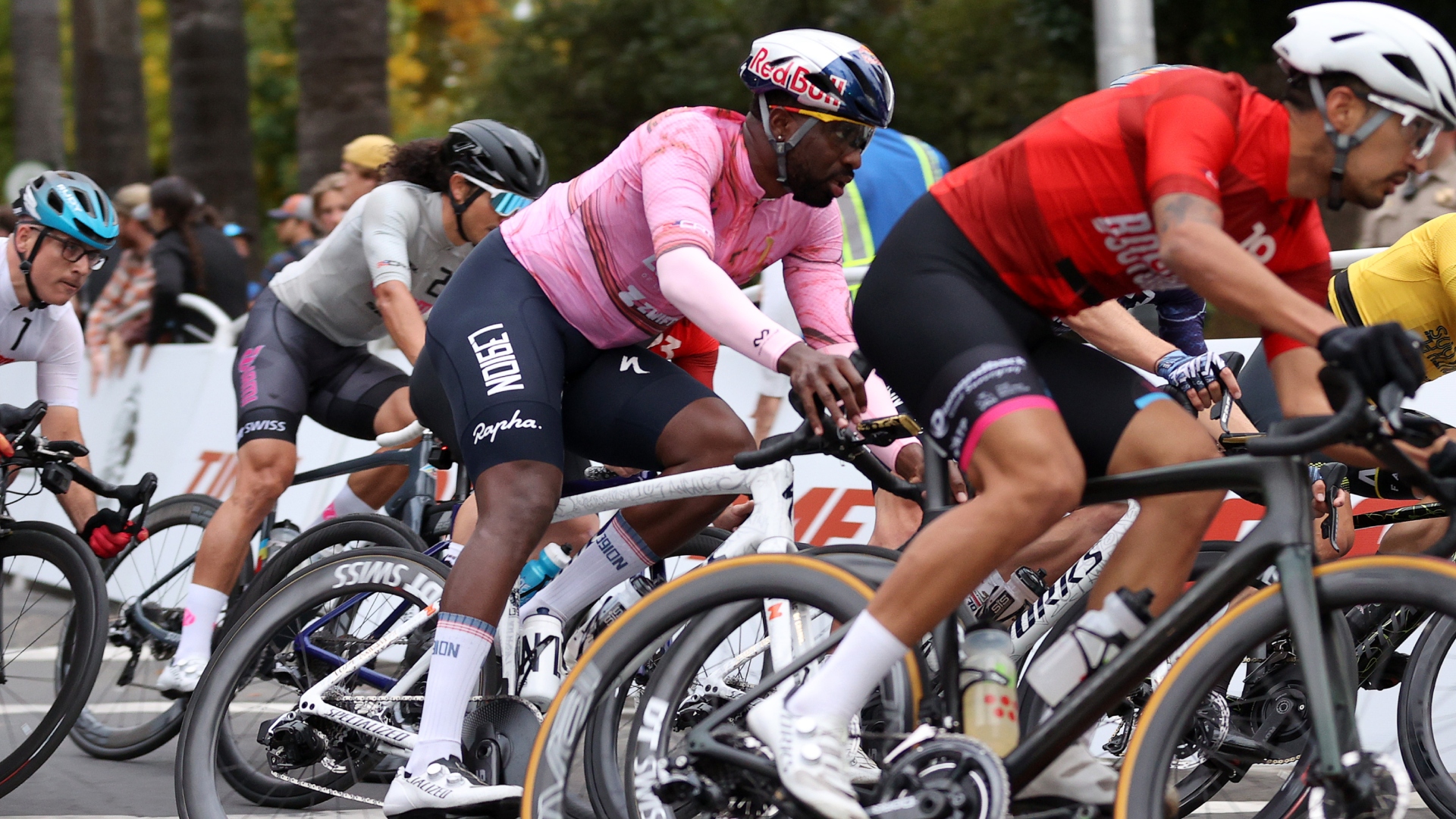 Can you make a living as an American domestic road racer? A look inside the part-time professionalism of the American road peloton
Can you make a living as an American domestic road racer? A look inside the part-time professionalism of the American road pelotonAfter decades of booms and busts, the American road scene finds itself in a fragile place. We spoke to riders to understand the reality of chasing the dream on home soil
By Logan Jones-Wilkins